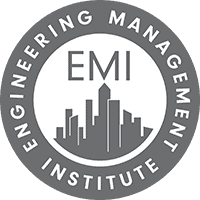This is a guest post by Patrick Sweet, P.Eng.
 When she was about one year old, my daughter, Charlotte, started mimicking what my wife and I did in a big way. If we did it, she wanted to do it. If I stirred my coffee, she wanted to stir her milk. If my wife went to play the piano, Charlotte wanted to play the piano. If I changed the channel on the TV, Charlotte wanted to try to do it, too. It was adorable, and I almost always got a chuckle out of it. Monkey see, monkey do.
When she was about one year old, my daughter, Charlotte, started mimicking what my wife and I did in a big way. If we did it, she wanted to do it. If I stirred my coffee, she wanted to stir her milk. If my wife went to play the piano, Charlotte wanted to play the piano. If I changed the channel on the TV, Charlotte wanted to try to do it, too. It was adorable, and I almost always got a chuckle out of it. Monkey see, monkey do.
Charlotte’s favorite thing to do, though, was to clean. This kid was a neat freak. The problem though, was that she was terrible at cleaning. After all, she was a one-year-old. She’d smear milk all over the table. She’d wipe her stuffed animals’ paws with a dirty dishcloth she stole from the counter. She’d use the carpet to wipe off her boots… you get the idea. The world was a much cleaner place when Charlotte wasn’t trying to clean it.
The link between effectiveness and productivity
I think there’s a key lesson here with respect to productivity. That lesson is the importance of effectiveness. Charlotte may have been passionate about cleaning, and working very, very hard to clean, but she wasn’t doing anyone any favors’ with respect to actually getting the house clean.
In other words, the kid was completely ineffective.
The problem is that many engineers operate the same way. They work very hard, are focused, and well intentioned, but their efforts don’t actually result in progress towards an end goal.
The essence of effectiveness is that your work is bringing you closer to your goals. You cannot be productive without being effective.
What gear are you in?
I like to use the analogy of a car to illustrate this point. Imagine you’re driving a car, and you want to drive to the coffee shop. In order to do that, you need to put your car in gear, and drive forward. Driving forward is an effective thing to do – it brings you closer to the coffee shop.
If, on the other hand, you left the car in neutral, sure you could press the accelerator down, and the engine would rev, and you’d use gas, but you’d be no closer to your goal. This is ineffective work.
Even worse, you could put the car in reverse, and use gas to move yourself away from the coffee shop, which means you’re actually putting yourself further away from your goals. This is counter-effective work.
All too often, engineers are in neutral or reverse. When that’s the case, they have no hope of being productive, no matter how many hours they work or how dedicated to the cause they are. Even worse, they don’t realize it because they don’t know which direction is forward in the first place.
Next steps: How can you be productive in an effective manner?
So, what do you do about it? How do you recognize whether you’re being effective or not? First and foremost, get clear on what your goals are. Think hard about what your personal mission is and what goals you need to put in place in order to realize that mission. My daughter was actually pretty good at this part – she knew she wanted everything to be clean.
Next, evaluate the work you do every day for a week, and be honest with yourself about whether or not that work is getting you closer to accomplishing your goals. This is where my daughter struggled. Not that you can blame her, but she had no insight into the fact that the work she was doing was taking her further from her goal. She was driving in reverse.
Don’t ever trick yourself into thinking working hard is the key to success. Doing the right work and doing that work the right way is always better.
About Patrick Sweet
Patrick Sweet, P.Eng., MBA is a product and engineering management consultant, speaker, and the creator of EngineeringAndLeadership.com. He helps engineering teams and OEMs create profitable products, boost productivity, and manage complexity. You can reach Patrick at [email protected] or @engileader.
Please leave your comments, feedback or questions in the section below on being productive.
To your success,
Anthony Fasano, PE, LEED AP
Engineering Management Institute
Author of Engineer Your Own Success




